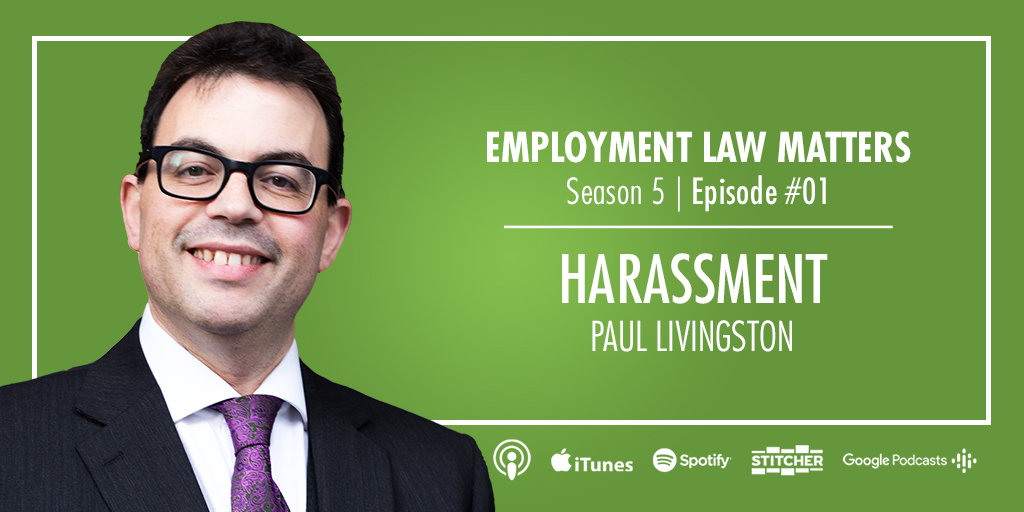
In 2019, I did my masterclass2019.co.uk tour. In it, I predicted the changes over the next 3-7 years which would happen to workers' rights as a result of leaving the EU. I have gone back today and rewatched those videos...
1/17
1/17
First, TUPE. I thought TUPE will remain largely unchanged. It’s part of accepted employment protection now, and in some ways the TUPE regs already go further than EU law requires.
3/17
3/17
But I predicted some tweaking, eg relaxation of consultation provisions, and probably allowing post-transfer harmonisation of terms and conditions (which we can’t do now because of Daddy’s Dance Hall.)
4/17
4/17
Second, our laws on collective consultation for 20+ redundancies stem from Europe. They are unpopular with employers and I predicted they would be be watered down, eg collective consultation only if over, say, 100.
5/17
5/17
But this is not a legislative priority, and it would require additional primary legislation and face considerable opposition from unions. It will not be part of the 2023 sunset repeals.
6/17
6/17
Third, I said most of the Working Time Regs will remain unchanged. Paid annual leave will stay – we goldplated with 5.6 weeks instead of 4. But I predicted three changes:
7/17
7/17
(1) reversing some of the holiday pay cases, eg carrying over holiday pay when sick; including commission and overtime in the calculation of a week’s pay
8/17
8/17
(2) the 48 hour maximum working week will go as it is universally unpopular and hardly enforced (so junior doctors can look forward to the return of the 80 hour week)
9/17
9/17
(3) the caselaw providing that some on-call and travelling time counts as ‘working time’ will also be reversed
10/17
10/17
Fourth, the Agency Worker Regs (implementing the Temporary Agency Workers Directive) require employers to offer equal terms & benefits (such as pay and annual leave) to agency workers once working for 12 weeks.
11/17
11/17
I said these were massively unpopular and will probably be repealed by a right wing government – but are not sufficiently widespread to mean it is a priority. Now we are likely to have 'automatic' repeal, I think they will go on 31/12/23.
12/17
12/17
Fifth, discrimination. Because of the 2006 EU Equal Treatment Framework Directive we introduced protected characteristics including religion and age. Nobody is arguing removing any of the protected characteristics – they’re here to stay.
13/17
13/17
BUT there is a good chance, with a Tory government, that discrimination compensation will be capped (we are currently prevented from capping by EU law), as unfair dismissal compensation is capped. This is not dependent on the 31/12/23 changes and might happen at any time.
14/17
14/17
Sixth, some of our family friendly laws stem from the EU, but it is very unlikely there will be any reduction. We exceed EU rights considerably, eg 52 weeks maternity, shared parental leave, and there is little political appetite to attack these.
15/17
15/17
As part of virtualemploymentlawacademy.com, I will update and revise these predictions, to explain what workers' rights I think will disappear, and what laws will stay (either in the same, or altered format) after 31 December 2023. Just two weeks left to enrol.
16/17
16/17
I hope you've found this thread helpful.
Follow me @daniel_barnett for more, or visit virtualemploymentlawacademy.com and join me to receive a nationally accredited CPD qualification in employment law over the next six months.
Like/Retweet the first tweet below if you can:
17/17
Follow me @daniel_barnett for more, or visit virtualemploymentlawacademy.com and join me to receive a nationally accredited CPD qualification in employment law over the next six months.
Like/Retweet the first tweet below if you can:
17/17
https://twitter.com/daniel_barnett/status/1573402037391306755
• • •
Missing some Tweet in this thread? You can try to
force a refresh





